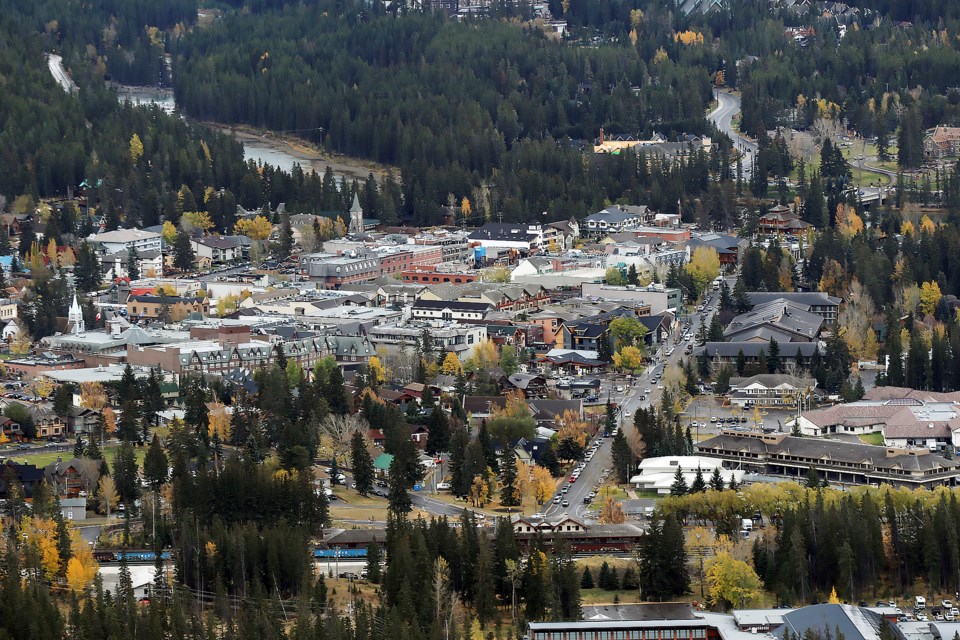BANFF – Parking requirements are preventing construction of many new housing developments in the Banff townsite.
Banff Caribou Properties has applied for an amendment to the land use bylaw, specifically to the off-street parking requirements for development of apartment housing, which was vetted by the Municipal Planning Commission (MPC) on Wednesday (May 10).
Officials with the company say Banff is suffering from low vacancy rates and needs new development to cope with the increasing temporary and permanent housing needs.
“We believe the current bylaw is restrictive of developments that aim to benefit the community in terms of housing needs and vacancy rates,” said Shawn Birch, Caribou’s president and CEO.
“Currently, there is no recognition for the nuance and particulars of purpose-built housing which is owned and managed by employers for their employees.”
Town of Banff planners say required parking rules for residential development is consistently noted by property owners and developers as one of the most significant regulatory barriers for new residential developments in Banff.
“Parking kills housing – this is a truth in the Town of Banff,” said Darren Enns, director of planning and development for the Town of Banff.
“We have a wall of shame here of projects that have fallen by the wayside because they cannot meet parking requirements.”
More recently, a third storey was not constructed at 510 Banff Avenue due to lack of space for required parking; a proposed fourplex at 217 Muskrat Street was restricted to a duplex because of required parking; additional apartments at Rabbit Street didn’t go ahead because of required parking.
In addition, Enns said multiple accessory dwellings in the Middle Springs residential neighbourhoods have been unable to proceed due to required parking.
“I can’t tell you the number of accessory suite applications we’ve turned away in Middle Springs because we tell them they need a parking stall on site and then we tell them they can’t park in the front yard,” he said.
“Then they disappear and development, quite frankly, goes underground. They do not get permitted, but they occur, and then there’s issues around equity and safety with unauthorized development, which we believe are not good things.”
Enns said one developer administration spoke to reported up to 50 per cent of projects stop at the design-concept stage due to the inability to meet required parking.
“There’s a number of housing applications that are not being built right now because of our parking requirements in addition to other factors,” he said.
“Our firm belief is that parking is a major constraint to new residential development in the Town of Banff.”
Banff Caribou Properties has more than 550 beds across 20 properties in Banff operated as staff accommodation for hotel staff.
Data collected by the company shows that vehicles are associated with only about eight per cent of bedrooms in staff housing – one car per 13 bedrooms – and on average about five per cent of bedrooms have vehicles – one car per 20 bedrooms.
Birch said many current underground parking stalls sit empty and under-utilized, yet the land use bylaw requires developers to build parking stalls at a much higher ratio of parking stalls to bedrooms.
“Decreasing the required ratio would allow development of housing catered towards this market by minimizing space taken up by parking and encouraging developments with additional bedrooms and living spaces,” he said.
“All this effort and complexity to cater to personal vehicles is contrary to the current direction the community of Banff is going, which is to mode shift people away from personal vehicles.”
Following presentations and 90 minutes of in-camera deliberations, MPC made a series of recommendations for council’s consideration of Banff Caribou Properties’ proposed land use bylaw amendment application.
Among them were considering adding a definition in the bylaw for employer-owned and managed housing and exploring additional reductions for off-street parking for employer-owned and managed housing.
Commissioners also want council to look at setting a base minimum for employer managed housing based on municipal data including residential parking permit data, and that council ensures any reductions granted are addressed should the reason for reductions change.
In addition, MPC asked council to consider increasing the off-street parking reductions when secure bike parking stalls are provided on a scalable per bedroom basis, and consider expanding current parking reductions for car-share to other forms of alternate transportation mode share such as e-bike share.
Beyond Caribou’s application arising from the lengthy discussions, MPC also made other recommendations, which include asking council to consider mechanisms to negate parking impacts in residential neighbourhoods from reduced parking requirements.
MPC also asked council to explore parking cash-in-lieu in apartment housing and purpose-built employer-owned and managed housing; changes to parking requirements for all residential land uses and whether not-for-profit housing should be eligible for the same considerations for parking reductions.
Chair Stavros Karlos said commissioners recognize that parking and housing continue to be perennial issues facing Banff and recognize decisions made in one area can have cascading proximal impacts on the community.
“We believe that the motions we have crafted for council’s consideration are reflective of these sometimes competing land uses,” he said.
“We know that the land use bylaw is an intricate and complicated piece of legislation that has cascading impacts and that there’s more work to be done in this area in terms of how housing is built and managed in our community.”
Town of Banff planners say parking ratios appear to have been established with the underlying philosophy of reflecting an existing situation throughout the history of the land use bylaw, such as assessing census data and observations followed by a policy response such as setting parking rations.
They say another approach would be for regulations to reflect a desired outcome, such as the existing Banff Community Plan objective of increasing opportunities for residents and visitors to use non-vehicular modes of transportation.
“I think it’s important from a policy perspective to be always looking forward,” said Enns.




